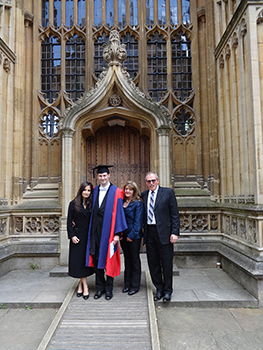Latest News Archive
Please select Category, Year, and then Month to display items
04 April 2024
|
Story Lunga Luthuli
|
Photo SUPPLIED
 Dr Juliet Kamwendo champions gender-inclusive climate action in Africa. Her expertise at the recently held AFR100 workshop highlighted vital steps towards sustainable and equitable development.
Dr Juliet Kamwendo champions gender-inclusive climate action in Africa. Her expertise at the recently held AFR100 workshop highlighted vital steps towards sustainable and equitable development.
Dr Juliet Kamwendo, Lecturer and Programme Director for Gender Studies in the Centre for Gender and Africa Studies at the University of the Free State, is spearheading efforts to integrate gender considerations into Africa's climate restoration agenda. Reflecting on her involvement, Dr Kamwendo stated, "This is particularly crucial, as women make up almost 50% of the population in Africa, and the depletion and degradation of land affect them disproportionately."
She recently served as a gender expert at the AUDA-NEPAD AFR100 workshop in Ouagadougou, Burkina Faso, from 25 to 29 March 2024. This initiative aims to restore forests and degraded land across Africa by 2030, with a focus on gender equality.
The workshop emphasised the integration of gender perspectives into the AFR100 project, acknowledging the disproportionate impact of land degradation on women. Dr Kamwendo's expertise highlighted the need to empower women in climate change interventions, addressing existing gender inequalities exacerbated by environmental degradation.
“Women – who are primarily responsible for household food security and water provision – bear the brunt of environmental degradation, leading to increased workloads, reduced income opportunities, and heightened vulnerability to climate-related disasters. Furthermore, the loss of forest cover and biodiversity further exacerbates the challenges faced by women, particularly in rural areas where they depend heavily on natural resources for their livelihoods,” added Dr Kamwendo.
Her participation highlights academia's crucial role in fostering inclusive and sustainable development, emphasising interdisciplinary collaboration to tackle complex environmental challenges. Through initiatives such as AFR100, stakeholders are working towards a more resilient and gender-responsive future for Africa.
UFS alumnus receives PhD in Statistics from the University of Oxford
2016-06-03

In May of this year, DW Bester obtained
a DPhil in Statistics at the University of
Oxford.
Photo: Supplied
On 14 May this year, Dr DW Bester received a DPhil in Statistics from the University of Oxford. The entire ceremony, which was held in the Sheldonian Theatre in Oxford, was conducted in Latin, as has been the case for the past 800 years.
Dr Bester completed his undergraduate studies and his honours degree at the University of the Free State (UFS). “At first, I was only planning to study for a master’s degree, but was privileged to get an opportunity to do a PhD as well. I didn’t think twice!” he says.
Studies at the University of Oxford
Universities in England do not require a master’s degree for PhD studies. With the help of Prof Max Finkelstein from the UFS Department of Mathematical Statistics and Actuarial Science, Dr Bester registered for the DPhil programme in Statistics directly after his honours studies.
“The title of my thesis was: Joint survival models: A Bayesian investigation of longitudinal volatility. It dealt with a problem in the medical field to determine the cause of stroke risk: is it the absolute level of blood pressure, or the volatility thereof? The analysis of this question led to interesting models which needed advanced application techniques. I had to study these techniques and write programmes for their application.
Although Dr Bester is working currently as the technical head of a company that calculates insurance for power stations, satellites, rockets, and cyber risks, he would like to continue working with his Oxford supervisor in future to make the techniques they have developed more accessible for researchers outside of the field of statistics.
“Studying at Oxford requires hard work, perseverance, and a lot of luck. Luck plays a big role, since there are no guarantees that hard work will ensure you a spot in one of the top universities.
Regarding his studies at Oxford, Dr Bester thinks back on his exposure to the GNU/Linux operating system, and free software. “I have seen how valuable this is for analyses in practice. I also had the privilege of meeting the father of free software, Richard Stallman,” Dr Bester says.
2011 Rhodes Scholar
He was elected as Rhodes Scholar in 2011. According to Dr Bester, who has been interested in Mathematics since high school, the Rhodes scholarship was something of a fluke. He applied for the Rhodes scholarship on the recommendation of Prof Robert Schall of the Department of Mathematical Statistics and Actuarial Science.
Role of the UFS in his successes
In addition to the continued support from the team of passionate professors and lecturers at the UFS, the actuarial degree at the UFS is fraught with statistics. Emphasis is also placed on Bayesian statistics. This was crucial to his studies at Oxford. According to Dr Bester, this topic is emphasised strongly in the international statistics community.
Dr Bester regards the work done by two of his lecturers, Michael von Maltitz and Sean van der Merwe, among his highlights at the UFS. Since our first year, they have created an atmosphere of camaraderie among the students. “I think this contributed to the success of everybody. They also make an effort to present topics outside of the syllabus regularly,” says Bester.